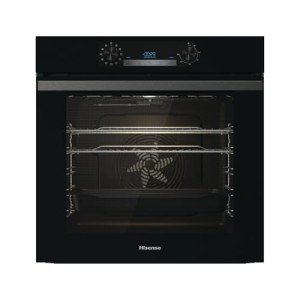Where Do You Think Integrated Ovens Be One Year From What Is Happening Now?
The Rise of Integrated Ovens: Revolutionizing Home Cooking
In the modern-day culinary landscape, integrated ovens have actually become a pivotal advancement, changing conventional cooking practices through their stylish style and complex performance. As house owners make every effort for both visual appeal and practical energy, integrated ovens have ended up being progressively popular in cooking areas worldwide. built-in oven and induction hob package intends to explore the features, advantages, and considerations of integrated ovens, supplying possible buyers with important insights to make informed decisions.
What Are Integrated Ovens?
Integrated ovens are built-in kitchen appliances designed to effortlessly mix into kitchen cabinets, providing a sleek and modern look. Unlike standalone ovens, which use up flooring space and can interfere with the visual flow of a kitchen, integrated ovens are set up within kitchen cabinetry, providing a streamlined appearance that optimizes space efficiency.
Kinds Of Integrated Ovens
Integrated ovens can be classified into numerous categories based upon their functions and performances:
Type
Description
Single Ovens
A single compartment for baking and preparing jobs.
Double Ovens
Two compartments permitting simultaneous cooking at different temperatures.
Steam Ovens
Uses steam for cooking, preserving nutrients and wetness in food.
Convection Ovens
Distributes hot air for even cooking and browning.
Wall Ovens
Built into the wall for simple access, frequently favored in contemporary kitchen areas.
Key Features of Integrated Ovens
Visual Appeal: Integrated ovens can match the color and design of kitchen cabinetry, producing a cohesive and stylish kitchen style.
Space Efficiency: By utilizing vertical space and lessening countertop mess, integrated ovens optimize kitchen layouts, particularly in smaller homes.
Advanced Technology: Many integrated ovens come with contemporary features such as digital control board, smart innovation, and various cooking functions to enhance the cooking experience.
Energy Efficiency: Designed with insulation and effective heating aspects, integrated ovens frequently consume less energy than standard models.
Versatility: Integrated ovens frequently include multiple cooking functions, such as baking, broiling, roasting, and steaming, making them ideal for a large variety of recipes.
Benefits of Integrated Ovens
1. Seamless Integration
Integrated ovens offer an unobtrusive appearance in the kitchen. When picked correctly, they can end up being a part of the overall style instead of a device that distracts from the visual.
2. Improved Cooking Performance
Many integrated ovens are geared up with boosted cooking technology, consisting of convection systems that ensure more even cooking and browning. This feature improves the total quality of prepared meals.
3. Increased Accessibility
With integrated wall ovens, users can avoid bending down to access the oven, making it simpler to pack and discharge meals, which is especially advantageous for those with mobility challenges.
4. Customizable Options
Integrated ovens can be customized to fit particular kitchen dimensions and individual choices, enabling various installations, sizes, and finishes.
5. Boosted Resale Value
An aesthetically pleasing integrated oven can boost the total value of a home, making it an attractive selling point for potential purchasers.
Considerations When Choosing an Integrated Oven
While integrated ovens present lots of benefits, there are a number of factors to think about before purchasing:
1. Size and Dimensions
- Check kitchen measurements: Ensure the integrated oven's dimensions match your available area.
- Consider appliance clearance: Adequate area for air flow and opening doors is vital.
2. Cooking Capacity
- Single vs. double oven: Assess family cooking requirements. Large families might benefit from double ovens to prepare several meals at the same time.
3. Power Source
- Electric vs. gas: Determine the preferred cooking source based upon the kind of fuel readily available in the kitchen.
4. Features and Functions
- Evaluate must-have features: Decide on necessary functions like steam cooking, convection settings, or clever innovation for convenient operation.
5. Spending plan Considerations
- Exploring price varieties: Integrated ovens come in different price points. Assess your spending plan and look for appliances that balance quality and affordability.
FAQ
1. Can integrated ovens be retrofitted into existing kitchens?
Yes, numerous integrated ovens can be suited existing kitchen cabinetry. Nevertheless, it is advisable to seek advice from a professional kitchen designer to make sure a correct fit.
2. How do I maintain an integrated oven?
Regular maintenance includes cleaning up the oven interior and outside, checking seals, and sometimes examining heating aspects for efficiency.
3. Are integrated ovens energy-efficient?
Normally, integrated ovens are developed to be energy-efficient due to their insulation and contemporary heating technology, possibly reducing energy bills with time.
4. Can integrated ovens be used for baking and roasting?
A lot of integrated ovens use numerous cooking functions, making them appropriate for baking, roasting, broiling, and other cooking strategies.
5. Is it hard to set up an integrated oven?
Installation might require expert help, especially if electrical or pipes work is needed. Do it yourself installation may void the warranty; hence seeking help from skilled installers is suggested.
Integrated ovens represent a substantial development in modern kitchen style and functionality, combining design with performance. Their smooth integration and advanced capabilities make them an appealing option for property owners looking for to elevate their cooking experience while enhancing their kitchen's visual. With various types and functions offered, potential purchasers ought to thoroughly consider their special requirements, making sure that they pick the right integrated oven for their culinary requirements. In a time where aesthetics and efficiency are equally vital, integrated ovens unquestionably stand as a good option within the realm of home cooking.
